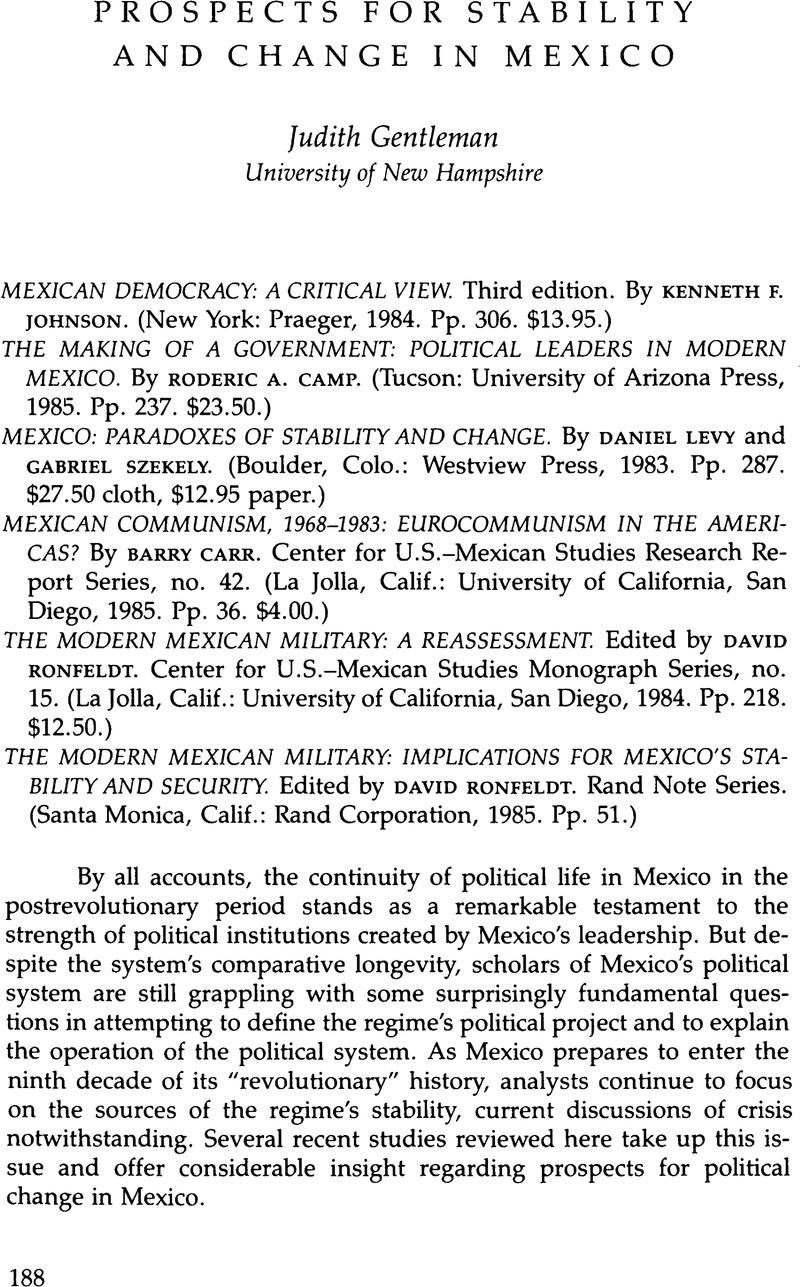No CrossRef data available.
Published online by Cambridge University Press: 12 October 2022

1. Theda Skocpol, States and Social Revolutions (Cambridge: Cambridge University Press, 1979).
2. See for example, The Mexican Left, the Popular Movements, and the Politics of Austerity, edited by Barry Carr and Ricardo Anzaldúa, Center for U.S.-Mexican Studies Monograph Series, no. 18 (La Jolla, Calif.: University of California, San Diego, 1986); and Barry Carr, “The PSUM: The Unification Process on the Mexican Left, 1981–1985,” in Mexican Politics in Transition, edited by Judith Gentleman (Boulder, Colo.: Westview Press, 1987).
3. Prior to publication of the Ronfeldt volume, little was available for those interested in Mexico's military establishment, and what was available was largely based on research conducted in the early 1970s and earlier. See, for example, Edwin Lieuwen, Mexican Militarism: The Political Rise and Fall of the Revolutionary Army, 1910-1940 (Albuquerque: University of New Mexico Press, 1968); Franklin D. Margiotta, “Civilian Control and the Mexican Military: Changing Patterns of Political Influence,” in Civilian Control of the Military: Theories and Cases from Developing Countries, edited by Claude E. Welch, Jr. (Albany, N.Y.: State University of New York Press, 1976); and David Ronfeldt, “The Mexican Army and Political Order since 1940,” in Armies and Politics in Latin America, edited by Abraham F. Lowenthal (New York: Holmes and Meier, 1976).
4. Camp provides a complete discussion of his survey universe and sample in the book's appendix.
5. Among Camp's other works on Mexican elites are Mexico's Leaders: Their Education and Recruitment (Tucson: University of Arizona Press, 1980) and Intellectuals and the State in Twentieth-Century Mexico (Austin: University of Texas Press, 1985).
6. Daniel Levy, “The Political Consequences of Changing Socialization Patterns,” in Mexico's Political Stability: The Next Five Years, edited by Roderic A. Camp (Boulder, Colo.: Westview, 1986), 19–46.